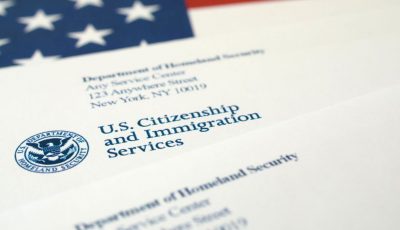240-day grace period for CW renewals effective on Feb. 14
If their papers aren’t in yet, foreign workers kept from working because of the federal government’s delay in processing thousands of contract worker permit renewals can get back on the job starting Feb. 14, after U.S. Secretary of Homeland Security Jeh Johnson signed off on a rule to allow a 240-day grace period for these waiting CW-1 workers.
The rule has been a long time coming since being published in the Federal Register for public comments in May 2014, and will become effective in February, a month after it’s published on the Federal Register this Jan. 15.
The rule grants a grace period for CW workers to continue working if an application for a new permit was filed before the old permit expired and if the new permit is still waiting approval. It also fixes inconsistency that allows for a loophole CW workers who change employers to continue working. Currently, a CW-1 worker who changes employer may continue working for up to 240 days while the new employer’s petition is pending. In the case of renewal petitions, however, the worker cannot stay on the job once their permit has expired, even if a petition for renewal was filed months in advance. The new rule means that the workers who are being renewed will get the same extended work authorization as workers who are transfers from one employer to another or who are terminated and then find a new employer.
“It’s about time,” said Delegate Gregorio Kilili C. Sablan (Ind-MP) in a statement yesterday. “The disruption to the Northern Marianas economy, the lost income of businesses and workers—that is still going on—would have been completely avoided if USCIS had not waited over a year and half to finalize this rule.”
While the business community has expressed elation over the new rule, it does little to assure or ease the negative effects already being experienced on the ground, with the short business hours, closed shops or restaurants, and out-of-work residents continuing their toll on businesses and livelihoods.
The fiasco came about after U.S. Citizenship and Immigration Services failed to process a backlog of 2,800 CW permit renewals by the beginning of the new year.
All these 2,800 employees comprise 23 percent of the CNMI’s total foreign national workforce base, Saipan Chamber of Commerce president Alex Sablan said yesterday. Practically every mom-and-pop business in the Commonwealth was impacted or affected by the lack of CW workers, Sablan said.
He said business leaders had hoped that the rule would have been implemented prior to the end of last year, relieving a considerable amount of “heartache and loss of business and individual worker opportunity.” Instead, employers have had to shut down their businesses or downsize their business to a level where they are not allowed to have full opportunity.
“At this stage, [the new rule] would help—God forbid—if we have another incident like this next year,” said Sablan. He hopes this is not repeated next year and USCIS has the manpower and capability to get all permits out “regardless of when they are placed in order of acceptance,” as permit submitted even within 90 days of expiration should be processed.
‘No adverse economic impact’
The federal law that wrested control of immigration from the local to federal government assured that the transition would be implemented in a way that “minimizes adverse economic impact,” according to Delegate Sablan.
“Many times over the last seven years USCIS has made choices that were consistent with that requirement to minimize negative impacts,” he said, “and we should not forget that. But not this time. The delay in approving this rule has definitely hurt the people I represent.”
“They didn’t fulfill their promise,” added Alex Sablan.
In a statement, Gov. Ralph DLG Torres called the new rule a step in the right direction and applauded Delegate Sablan for “his untiring efforts to resolve this issue with our federal counterparts.”
“We are not done yet and discussions on improvements will be ongoing,” said Torres. “I also extend the Commonwealth’s appreciation to Sen. Murkowski of Alaska who serves as the chairwoman of the Senate Energy and Natural Resources Committee that oversees issues regarding insular areas. In my communication with the senator’s office, I was informed that she recognized our concerns and had communicated with USCIS to assist in resolving this current matter.“
Delegate Sablan said the new rule is an improvement to the immigration system overall, but not a solution to the ongoing problem of delayed CW processing.
“I call on U.S. Citizenship and Immigration Services to continue to use all its resources to clear the backlog of CW applications as quickly as possible, so that the Northern Marianas can get back to business.”
Sablan spoke directly with USCIS Director León Rodríguez on Jan. 3 to demand action on the processing delay and make clear what it costs Marianas businesses and workers. And the congressman met last week directly with USCIS staff in California who are responsible for the processing to drive that point home.
Sablan also urged Rodríguez to get the 240-day rule approved immediately.
The rule was originally opened for public comment on May 12, 2014, in response to a Dec. 20, 2012, request from the Saipan Chamber of Commerce, the Hotel Association of the Northern Mariana Islands, and Society for Human Resource Management CNMI. All six comments received by USCIS favored the 240-day grace period for delayed processing.
Once the new rule goes into effect on Feb. 14, any worker whose employer files a renewal petition before the worker’s CW-1 permit expires will be able to stay on the job legally for up to an additional 240 days.
The new rule also covers workers with H-1B1 or E-3 visas. The H-1B1 program allows employers to temporarily employ foreign workers from Chile and Singapore in the U.S. on a nonimmigrant basis in specialty occupations. The E-3 does the same for workers from Australia. Both categories have annual numerical caps, similar to the cap on CW-1 permits.



























